It is broadly possible to categorize certain countries as producing specific types of classic cars. The Italians tend to produce thoroughbreds like those from Ferrari and Lamborghini, while the Germans favor beautifully engineered vehicles from the factories of companies like BMW. America cornered the market on muscle cars, but French manufacturers produced some of the most quirky and interesting vehicles to grace our roads. A perfect example is this 1974 Citroen 2CV 6. It presents exceptionally well, and the larger engine under this model’s hood promises respectable performance for a vehicle of this type. This one needs a new home, with the seller listing it here on Craigslist in Henderson, Nevada. It could be yours for $22,980, and I must say a big thank you to Barn Finder Gunter K, who continues to spot genuinely interesting classics.
It can sometimes be difficult to tell one modern car from another as many manufacturers pursue similar design philosophies. However, there is no mistaking a 2CV. Citroen locked in the basic styling before World War II and only made minor changes post-war before sending the first cars down the production line. It continued to receive further refinement throughout its production run, but none changed its overall appearance or character. This Citroen rolled off the line in 1974, and its overall condition is impressive for a vehicle of this age. Its Lagoon Blue paint shines nicely, with no apparent problems. The vinyl “Chic” graphics are a later addition the company offered in the 1980s, and while they may not please purists, they don’t look out of place. The panels sport a few minor bumps and marks, but none require immediate attention or detract from the overall presentation. The best news is the car’s rust-free status. There’s nothing visible externally, while the underside shot reveals spotless floors. The glass appears flawless, the chrome is excellent, and the White painted wheels contrast the Blue exterior but complement the graphics.
Life behind the wheel of a 2CV represents motoring at its most basic. Those seeking power windows, power seats, or a powerful stereo have come to the wrong place. It does include air conditioning, which is achieved by rolling back the canvas top! Someone has added an aftermarket wheel which should improve driver comfort. Otherwise, it appears unmolested. The upholstered surfaces present well, as do the floor mat and dash. There is no radio, but there’s enough space in the back seat to comfortably accommodate a couple of adults. That could open opportunities for a spot of karaoke or stand-up (sit down?) comedy on long journeys.
Buyers in 1974 could choose from two engines to power their new purchase. Those selecting the 2CV 6 received the 602cc air-cooled twin-cylinder powerplant producing 32hp. The power feeds the front wheels via a four-speed manual transmission, and while a ¼-mile figure is largely academic, the “6” could cover the distance in 22.7 seconds. The company quoted a top speed of 68mph, although owners could exceed that figure courtesy of a tailwind. For long journeys, the 2CV can cruise at 50mph while sipping its fuel at around 45mpg. However, the drivetrain is not the 2CV’s defining feature. That honor falls to the suspension, which is among the softest in the automotive world. Citroen designed it to cope with harsh rural environments, famously saying it was engineered to cross a plowed field without breaking the contents of a basket of eggs. Pitching one of these classics into a corner for the first time on sealed roads can be unnerving. The amount of body roll means the 2CV can feel on the verge of tipping, but once you are accustomed to the sensation, it makes driving engaging. The seller provides no specific information on how the vehicle runs or drives, but the overall presentation and their use of the word “fun” in their description suggest the news should be positive.
Although some classics blend into their surroundings like automotive chameleons, there is no such danger with this 1974 Citroen 2CV 6. The company hit on winning styling with the first examples to roll off the line in post-war France, and the subsequent updates over the following forty-two years were evolutionary. The company saw no reason to reinvent the wheel, and the 2CV rewarded this approach with more than nine million sales before production ended. The 2CV has a dedicated following, and spotless examples command impressive prices. This car isn’t perfect, but it is rust-free with no apparent needs. Therefore, the seller’s price seems competitive in the current market, meaning it probably won’t take long to find a new home. If you’ve never considered owning one of these French classics but are tempted by what you see, it may be worth pursuing this one further.
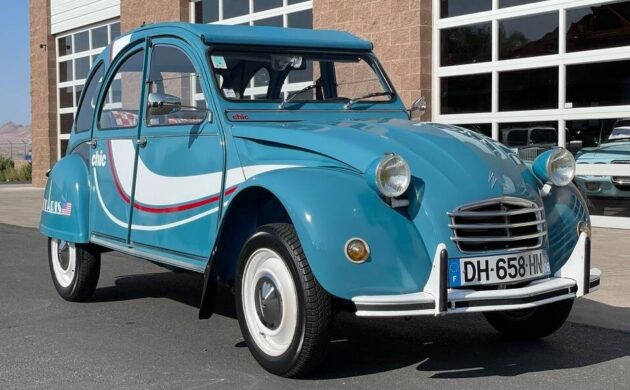
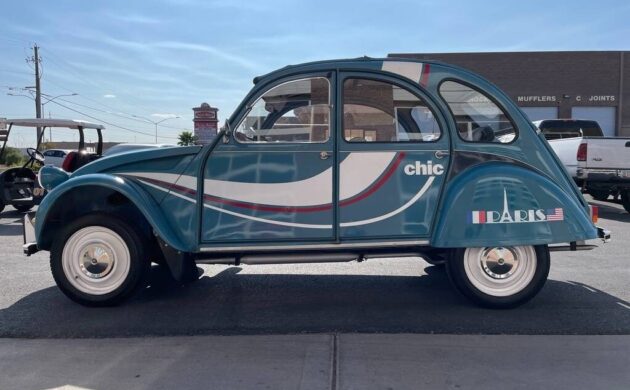
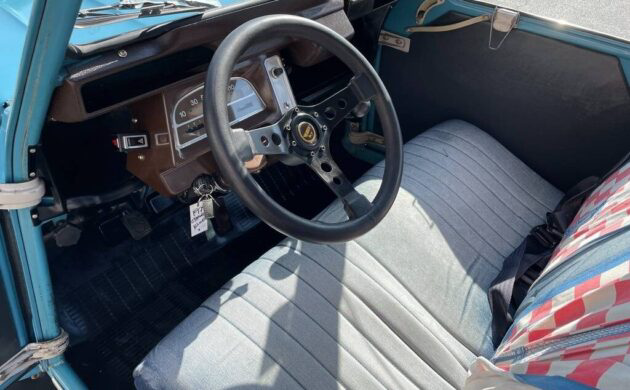
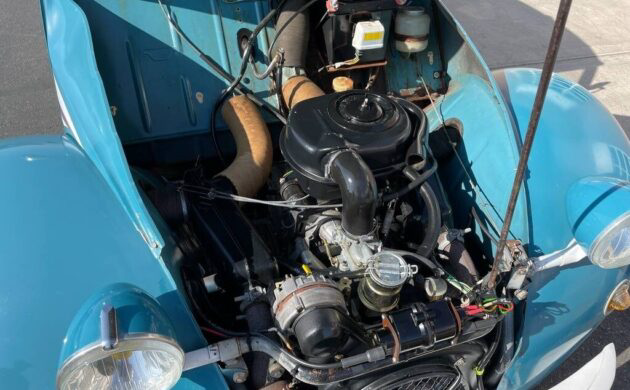
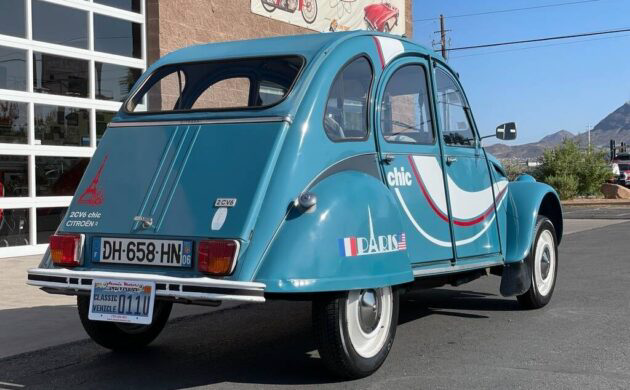





It is certainly French.
Yep still ugly as mud!
….your dog is ugly too….🤣🤣
ton chien est moche aussi!
These things are engineering marvels. Not elegant, not fast, but they do what they’re designed to do—get the farmers in war ravaged France on the road for the least amount of money possible. Parts are readily accessible— there were only 9 million made.
3 times what you pay here in Spain for a top car. However…
It’s unusual for US based 2CV to have an honest identity but this one seems quite genuine. It is indeed a -74 2CV6 based on the chassis number and details are largely correct. Expensive, and ugly decals but looks like a good specimen.
I think the caravan (or estate as some say) is a rare and funny thing.
2CV are not my kind of car but it have its place in automotive history.